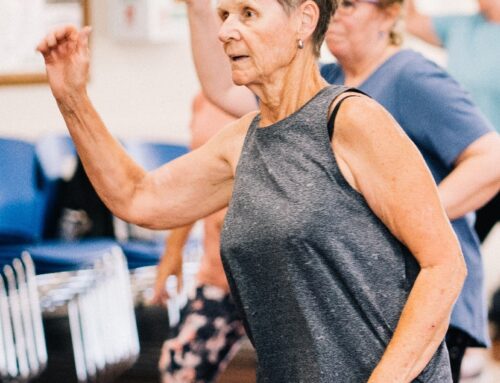Anxiety is an incredibly common mental health condition, but it’s also a very manageable one.
While the symptoms of anxiety don’t typically go away on their own, treatment can help you overcome your fears and take control of your life again.
But you can’t be in therapy 24/7, and there’s no telling when you might be triggered by something or your symptoms might flare up. Working with a therapist can help you build the skills necessary to manage those symptoms every day.
Whether you’ve already looked into some kind of treatment or you’re not sure whether it’s right for you, let’s cover three good habits you can put into place now to help ease everyday anxiety.
 1. Exercise
1. Exercise
Most people know the importance of exercise for your physical health. But, it can also do incredible things for your mental well-being, too—including helping with anxiety.
Exercising every day can boost your mood, reduce stress, and give you something to focus on that will distract you from your worrying thoughts. The natural endorphins released through exercise can actually help you feel happier. You’ll feel even better if you get active outdoors!
You don’t need to be a fitness buff to take advantage of physical activity. A walk around your neighborhood each day can significantly help with your symptoms.
2. Become More Mindful
Mindfulness is getting a lot of attention in the world of mental health nowadays—and there are plenty of reasons why.
 The practice of mindfulness allows you to stay in the present moment, rather than letting your anxieties take over your thoughts completely.
The practice of mindfulness allows you to stay in the present moment, rather than letting your anxieties take over your thoughts completely.
While mindfulness can take some time to embrace fully, getting started is easy. If you’re feeling overwhelmed or fearful, stop what you’re doing, close your eyes, and take a few slow, deep breaths.
Focus on the present and nothing else. What do you hear? How does your body feel at that exact moment?
Thoughts will continue to come and go as you practice mindfulness. But it can help to picture them as clouds that you can’t hold on to. Let them drift by.
Only a few minutes of mindfulness can make a big difference in how you feel. The more you do it, the more in-control you can become over your anxiety.
3. Start Journaling
You don’t have to be an avid writer to keep a journal. Jotting down your thoughts will help you whenever you’re feeling anxious, and you can use it as a long-term tool to track your progress.
 A good rule of thumb is to carry a small journal around with you everywhere. When you start to feel anxious, write. Jot down how you’re feeling, what you’re doing at that moment, and what might have triggered your anxiety.
A good rule of thumb is to carry a small journal around with you everywhere. When you start to feel anxious, write. Jot down how you’re feeling, what you’re doing at that moment, and what might have triggered your anxiety.
When you see your anxious thoughts in black and white, they might not seem as powerful. You were the one who wrote them, so you might realize you have more control than you originally thought. It’s a quick-calming tool for exceedingly overwhelming moments.
As a bonus, you can look back on previous entries to see how far you’ve come. You’ll learn which strategies help, and which aren’t as effective.
These suggestions are just the tip of the iceberg. There are so many habits you can embrace to ease your everyday anxiety. By making them a part of your daily routine, you can take control of your thoughts again.
If you’re interested in learning more skills and habits that can help you with your anxiety, feel free to contact me. Therapy is still the best way to manage anxiety on a long-term basis. Combining habits like these with professional help can help you to find the freedom from fear you deserve.





